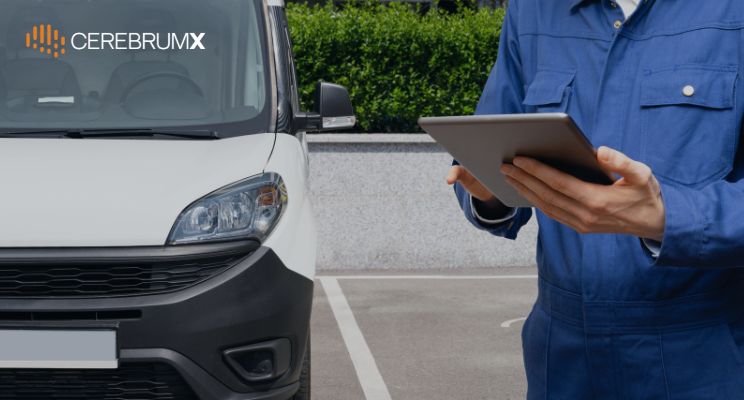Managing a fleet efficiently is no small feat. Fleet managers navigate a maze of administrative tasks, vehicle routing, maintenance schedules, and more, all while striving to minimize costs and maximize profitability. Fortunately, the advent of vehicle data—sourced from varied sources including but not limited to connected cars, aftermarket dongles for non-connected vehicles, dashcam streams, and more. This consolidated data has revolutionized the way fleets operate. By integrating this wealth of data into a cohesive platform, fleet managers can transform daily operations, driving efficiency and profitability like never before.
The Emergence of Comprehensive Vehicle Data
Connected vehicle data offers an unmatched view into fleet operations. This data spans from live GPS tracking and fuel usage to maintenance alerts and driver behavior metrics. For fleets that include legacy vehicles lacking built-in connectivity, dongles bridge the gap, ensuring no vehicle is left behind. Dashcams, meanwhile, contribute real-time video feeds and context around incidents, providing a more complete picture of road conditions, driver actions, and potential risks.
By leveraging data from these diverse sources, fleet managers can make informed, data-driven decisions to streamline operations, enhance safety, and reduce costs.
Daily Fleet Management Tasks – Made Better with Vehicle Data
Streamlined Administrative Tasks
Administrative responsibilities like recording mileage, fuel expenses, and compliance checks can consume significant time. A comprehensive vehicle data ecosystem automates data collection and logging, significantly reducing manual input and errors. Fleet managers can access real-time data, ensuring accurate records for audits and performance assessments.
Optimized Vehicle Routing
Routing inefficiencies lead to wasted time, higher fuel consumption, and increased wear and tear on vehicles. With real-time GPS tracking and predictive analytics, managers can optimize routes, factoring in traffic patterns, road conditions, and delivery schedules. This not only enhances productivity but also improves customer satisfaction through timely deliveries.
Proactive Maintenance Scheduling
Unexpected breakdowns disrupt operations and inflate costs. Connected vehicle data, combined with dashcam feeds, enables predictive maintenance by providing alerts for issues like low tire pressure, engine warnings, or upcoming service needs. Proactive scheduling minimizes downtime and extends vehicle lifespan, saving costs over the long term.
Enhanced Vehicle Tracking and Monitoring
Live vehicle tracking powered by GPS coordinates, telemetry data, and dashcam visuals offers fleet managers a bird’s-eye view of their operations. Whether tracking a delivery truck or monitoring driver behavior, this level of visibility helps ensure safety, compliance, and operational efficiency.
Efficient Fuel Management
Fuel is one of the largest expenses in fleet operations. Embedded vehicle data tracks fuel consumption in real time, offering insights into inefficiencies and potential savings. Fleet managers can identify fuel-wasting behaviors, such as idling or harsh acceleration, and implement corrective measures.
Centralizing Intelligence – All Insights at a Single Place
As the volume of fleet data grows, the ability to interpret and act on it effectively becomes paramount. A dedicated fleet summary dashboard consolidates key metrics into a single, intuitive interface. A fleet summary dashboard, like the one offered by CerebrumX, provides a comprehensive snapshot of fleet activities, enabling managers to:
- Review fleet-wide fuel consumption and miles driven at a glance.
- Monitor the status of individual vehicles, including live locations and maintenance needs.
- Analyze driver performance metrics to identify training opportunities and reward safe driving behaviors.
- Access reports on compliance, incident history, and operational trends.
This centralized approach ensures that fleet managers have all the information they need at their fingertips, empowering them to make swift and informed decisions.
The Path to Greater Efficiency and Profitability
The integration of comprehensive vehicle data into daily fleet management tasks not only streamlines operations but also delivers tangible financial benefits. With optimized routing, reduced fuel costs, proactive maintenance, and improved administrative efficiency, fleets can significantly enhance their profitability. Moreover, these tools help fleets align with sustainability goals by minimizing unnecessary mileage and emissions.
In an industry where every second and every dollar counts, adopting a data-driven approach to fleet management is no longer optional—it’s essential. By embracing the power of connected vehicle data and investing in a robust platform with features like a fleet summary dashboard, businesses can stay ahead of the curve, driving efficiency, safety, and profitability.
Whether managing a small fleet or a vast network of vehicles, the future of fleet management is here, and it’s powered by data.

